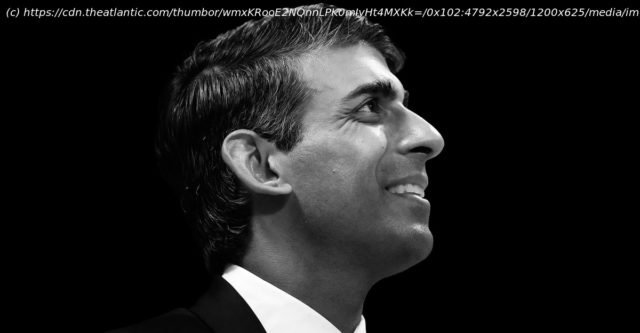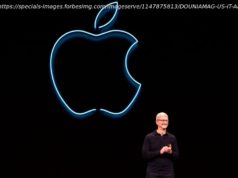The new prime minister’s wealth matters more than his background.
In December 2019, nearly 14 million people voted for Boris Johnson to become prime minister of Britain. Last month, 140,000 Tory members voted for Liz Truss to succeed him. And today, the support of 195 Conservative members of Parliament was enough to install Rishi Sunak on Downing Street.
British democracy is shrinking, and the result is Sunak—a politician who lacks a popular mandate but does have incredible wealth and an air of hoodie-wearing dorkiness. Let me be clear about how cringe he can be: The 42-year-old once told a pair of schoolboys that he was a “total coke addict” before clarifying, with a small, snorting laugh, that he was referring to Coca-Cola. He wears his designer slides with white socks. He owns a $200 “smart mug” that heats itself. His victory speech revealed all the charisma of a recorded announcement at a train station. Every time I see him on television, I feel an atavistic urge to give him a wedgie and steal his lunch money.
Sunak’s success is a direct consequence of Truss’s complete and total failure. Only six weeks ago, she beat him to the Tory leadership, but a parade of nightmare decisions panicked the bond markets and doomed her premiership. After that debacle, her wounded party moved to find a replacement—fast. By insisting that any potential candidate had to be nominated by 100 of their 356 colleagues, the Tories’ “men in gray suits” narrowed the field and ensured that this new leadership contest would favor known quantities.
Only three people had the potential to succeed. Sunak was the obvious choice, because he had attracted the most support from members of Parliament in the last leadership election (before losing to Truss among rank-and-file Conservatives). The second possibility was Penny Mordaunt, the supposed “unity” candidate, who did not secure enough nominations to stay in the race. And the third was Boris Johnson—yes, that Boris Johnson, of the haystack hair and grudge against monogamy, a man whom many of these same MPs had declared to be unfit for office only three months previously. Johnson flew back early from a holiday in the Caribbean, looking like he had slept in a hedge, and made some phone calls. Then he withdrew from the race late last night, all the while insisting that he could have made the ballot had he wanted to. That left Sunak as the only candidate.
In one sense, Sunak’s success is a triumph for diversity: He is the first Briton of Indian descent to be prime minister, and, as a Hindu, the first non-Christian. But it is also a victory for the establishment. Sunak attended Winchester College, a private boarding school that last produced a prime minister in 1801, and then Oxford, which produced five of the past six. “England was ruled by an aristocracy constantly recruited from parvenus,” George Orwell wrote in The Lion and the Unicorn, of the first half of the 20th century.






